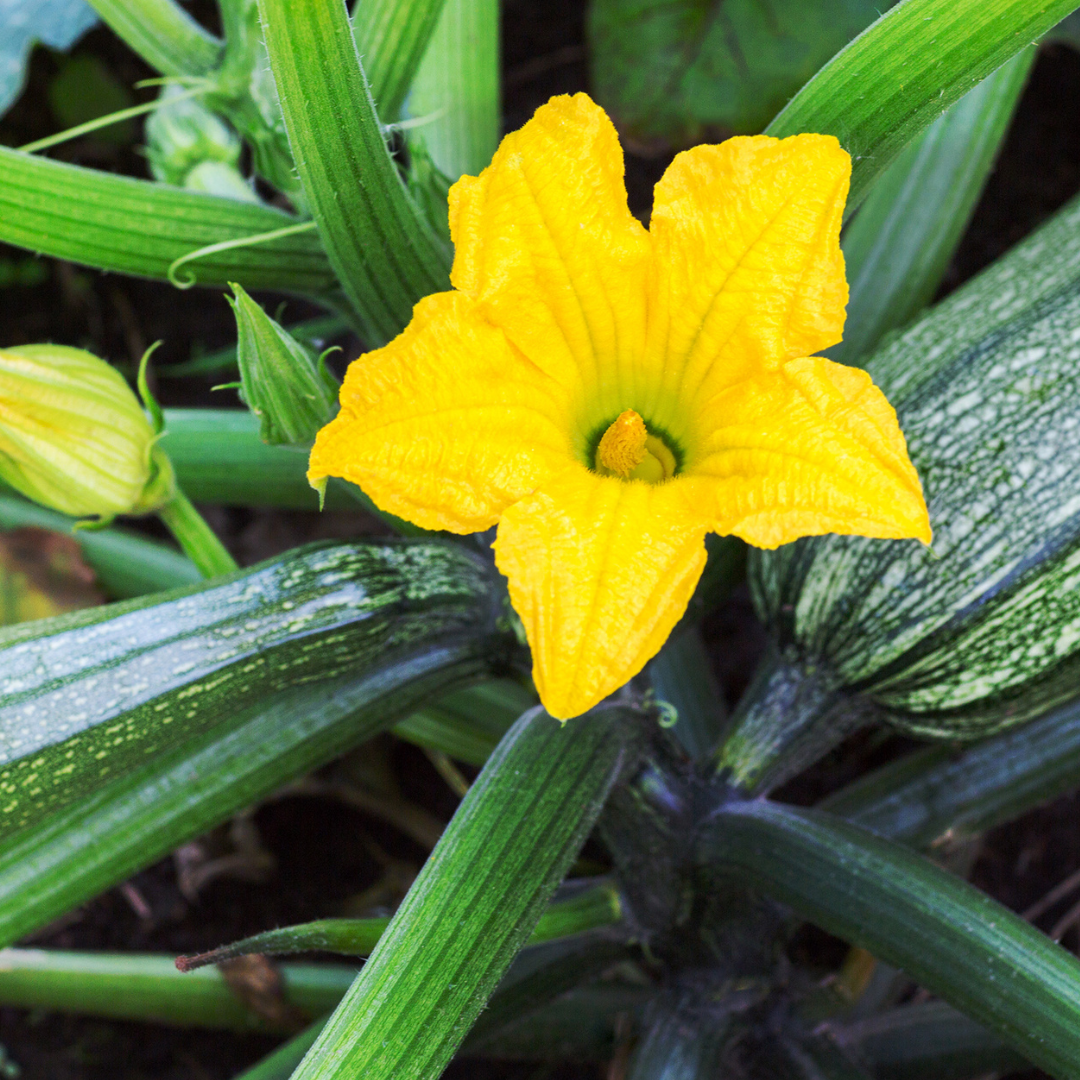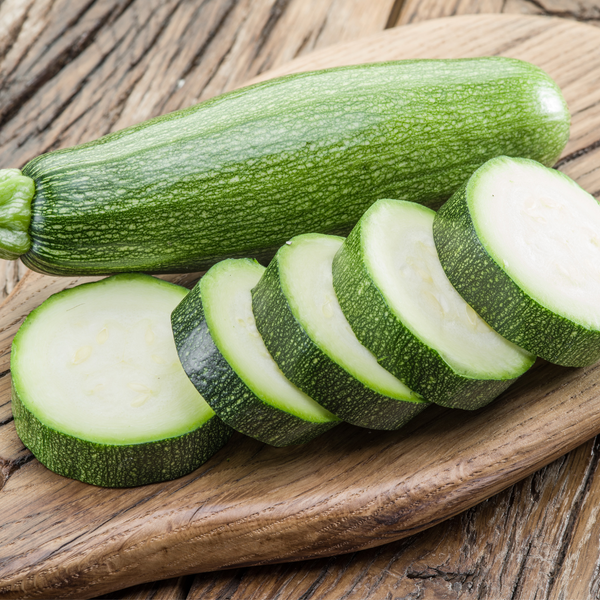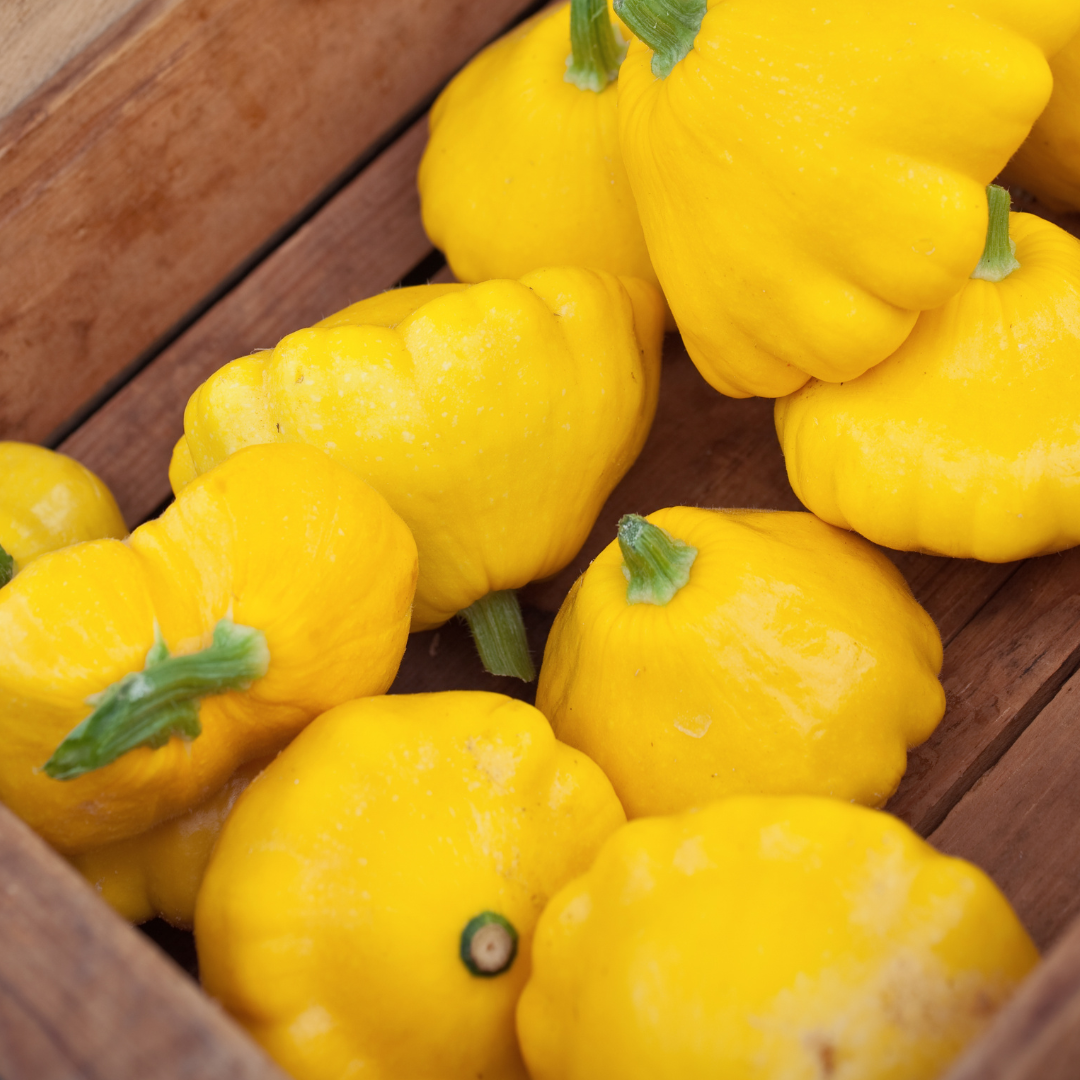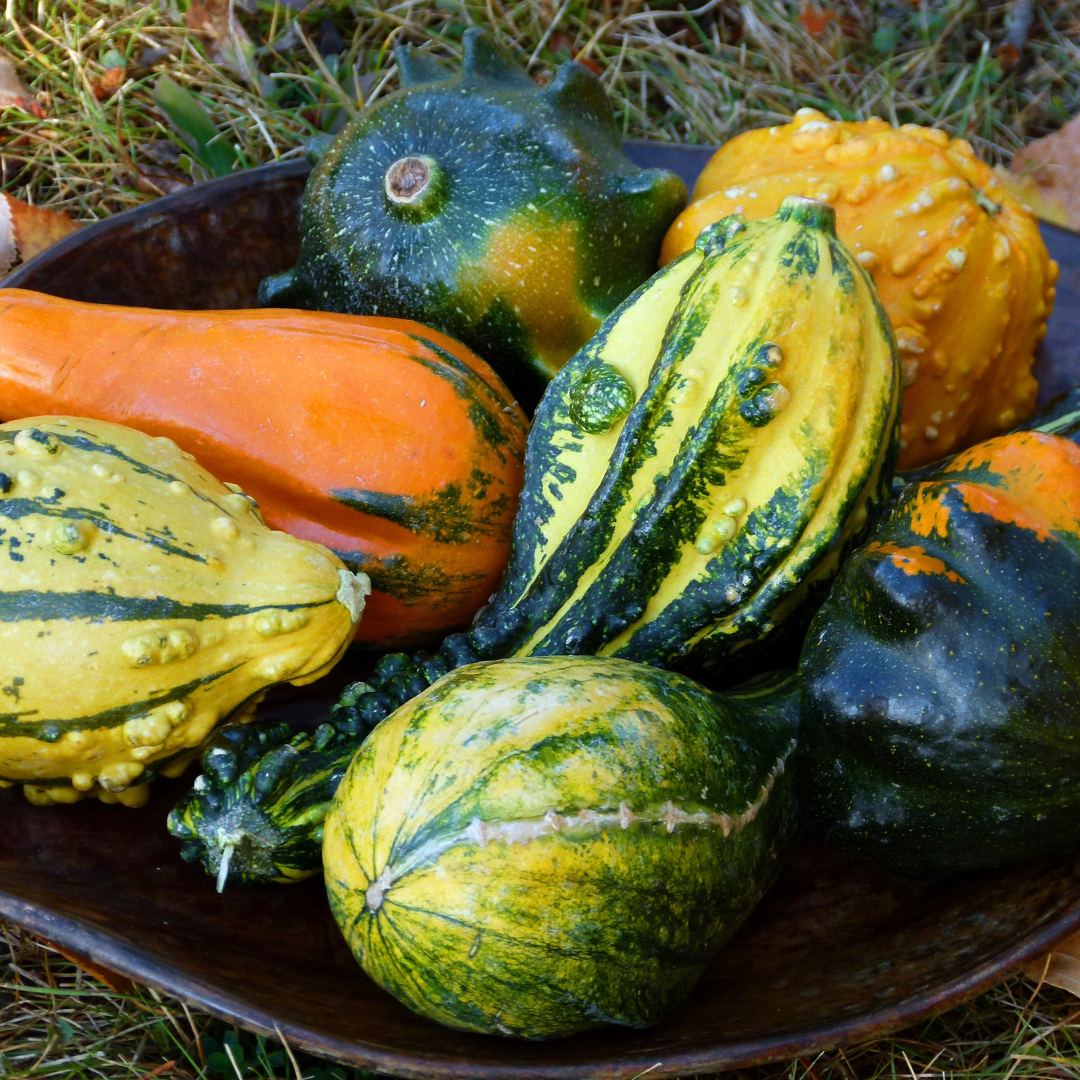In this article, we will learn all the intricacies of how to grow zucchini from seeds. We will learn how to germinate, plant, transplant, produce, grow and harvest your zucchini crop.
Zucchini is a versatile vegetable that can be grown from seed, making it an ideal choice for gardeners who want to start their garden from scratch. One of the most important stages of growing zucchini from seed is the germination stage, where the seed begins to sprout and grow into a seedling.
The germination stage is crucial for the success of growing zucchini seeds, as it determines the health and vitality of the seedlings that will eventually grow into mature plants.
Here are some tips on how to successfully germinate zucchini seeds:
- Start with fresh seeds: It's important to start with fresh seeds to ensure a high germination rate. Old or expired seeds may not sprout at all or may produce weak seedlings that are prone to disease.
- Provide the right growing conditions: Zucchini seeds need warm soil temperatures and plenty of moisture to germinate. The ideal temperature range for germinating zucchini seeds is between 70 and 85 degrees Fahrenheit.
- Prepare the soil: The soil should be loose and well-draining to provide the best environment for seed germination. Mix in some compost or other organic matter to help retain moisture and provide nutrients.
- Plant the seeds at the right depth: Zucchini seeds should be planted about 1 inch deep in the soil. If planted too shallow, the seeds may dry out or become dislodged from the soil. If planted too deep, they may not be able to emerge from the soil.
- Water regularly: Keep the soil moist but not waterlogged. Watering too much can cause the seeds to rot while watering too little can cause the soil to dry out and the seeds to die.
- Provide adequate light: Zucchini seedlings need plenty of light to grow and thrive. If you're growing zucchini seeds indoors, make sure they receive at least 12 hours of bright light each day.
- Thin-out seedlings: Once the seedlings have emerged, thin them out so that they are spaced about 2 to 3 inches apart. This will give them enough room to grow and develop into healthy plants.
Non-GMO Squash Seeds | 8 Variety Pack

$15.95
Ultimate 8 Squash Seeds Variety Pack for Home Gardeners – Heirloom & Non-GMO Seeds Introducing our 8 Squash Seeds Variety Pack—the ultimate selection for gardeners who love cultivating a diverse range of delicious, homegrown squash! This carefully curated variety pack… read more
By following these tips, you should be able to successfully germinate zucchini seeds and grow healthy, robust plants.
The Best Soil for Growing Zucchini from Seed
Zucchini is a warm-season vegetable that requires well-draining, nutrient-rich soil to thrive. If you're planning to grow zucchini from seed, it's important to choose the right soil for optimal growth and development.
Here are some tips on the best soil for growing zucchini from seed:
- Choose a well-draining soil: Zucchini plants do not like wet soil, and too much water can cause the roots to rot. Choose soil that is well-draining, meaning it allows excess water to drain away from the roots.
-
Look for nutrient-rich soil: Zucchini plants require a lot of nutrients to grow and produce fruit. Look for soil that is rich in organic matter, such as compost, aged manure, or leaf mold. These materials will provide the plant with essential nutrients such as nitrogen, phosphorus, and potassium.
-
Test the pH of the soil: Zucchini plants prefer a soil pH between 6.0 and 7.0. Test your soil to determine its pH level, and amend it if necessary. If the soil is too acidic, add lime to raise the pH. If it is too alkaline, add sulfur to lower the pH.
-
Add perlite or vermiculite: These materials help to improve soil drainage and aeration, which is important for healthy root development.
-
Consider raised beds: Zucchini plants can be grown in raised beds filled with a mixture of compost and topsoil. Raised beds provide good drainage and allow you to control the soil quality more easily.
-
Avoid heavy soils: Zucchini plants do not do well in heavy, clay soils. If your soil is heavy, consider mixing in sand or other materials to improve drainage.
-
Use a balanced fertilizer: Zucchini plants need a lot of nutrients, especially nitrogen, to grow and produce fruit. Use a balanced fertilizer, such as a 10-10-10 or 20-20-20, to provide the plant with the nutrients it needs.
Vegetable Seed Vault Kit | 35 Variety Pack

$29.95
$49.95
Ultimate Survival Seed Vault: 16,000+ Non-GMO Heirloom Vegetable Seeds for Emergency Preparedness Introducing the Seed Vault Kit, your all-in-one solution for emergency preparedness and sustainable gardening. This premium seed kit contains over 16,000 non-GMO, Heirloom, Non-Hybrid, and Open Pollinated seeds,… read more
By choosing the right soil for your zucchini plants, you can ensure healthy growth and a bountiful harvest. Remember to test your soil and amend it as needed, and provide your plants with adequate water, sunlight, and nutrients. With proper soil, your zucchini plants will produce plenty of delicious fruit for you to enjoy.
The Best Time to Plant Zucchini Seeds
Zucchini is a warm-season vegetable that thrives in temperatures between 70 and 85 degrees Fahrenheit. If you're planning to grow zucchini from seed, it's important to choose the right time to plant to ensure optimal growth and development.
Here are some tips on the best time to plant zucchini seeds:
-
Wait until after the last frost: Zucchini plants are sensitive to frost and should not be planted until all danger of frost has passed. In most areas, this means waiting until late spring or early summer.
-
Check soil temperatures: Zucchini seeds need warm soil temperatures to germinate, so it's important to wait until the soil has warmed up to at least 60 degrees Fahrenheit. Use a soil thermometer to check the temperature of the soil before planting.
-
Consider your growing season: Zucchini plants require a long growing season, typically around 60 days from planting to harvest. Make sure you have enough time in your growing season to allow the plants to mature and produce fruit.
-
Plant in succession: To extend your harvest season, consider planting zucchini seeds in succession, with new seeds planted every 2 to 3 weeks. This will ensure a continuous supply of fresh zucchini throughout the growing season.
-
Plant in full sun: Zucchini plants require at least 6 hours of direct sunlight per day to grow and produce fruit. Choose a planting location that receives full sun throughout the day.
-
Choose the right spacing: Zucchini plants require plenty of space to grow and develop, so make sure to space them at least 3 feet apart. This will allow for good air circulation and reduce the risk of disease.
- Consider using a mulch: Mulching around your zucchini plants can help to keep the soil moist and cool, which is important for healthy growth. Use a layer of straw, leaves, or other organic material to keep the soil moist and reduce weed growth.
By planting zucchini seeds at the right time and in the right conditions, you can ensure healthy growth and a bountiful harvest. Remember to check soil temperatures, plant in full sun, and space your plants properly to ensure optimal growth and development. With proper care, your zucchini plants will provide you with plenty of delicious fruit throughout the growing season.
Black Beauty Zucchini Seeds

$2.49
Black Beauty Zucchini Seeds - Heirloom, Non-GMO, Non-Hybrid, Open-Pollinated - Perfect for Your Garden! Discover the joy of growing your own Black Beauty Zucchini, a classic heirloom variety known for its high yield and deliciously tender fruit. Our seeds are… read more
The Best Planting Depth for Zucchini Seeds
Zucchini seeds need to be planted at the right depth to ensure successful germination and healthy growth. Planting too shallow can cause the seeds to dry out while planting too deep can prevent the seeds from germinating at all.
Here are some tips on the best planting depth for zucchini seeds:
-
Plant the seeds about 1 inch deep: Zucchini seeds should be planted about 1 inch deep in the soil. This will provide enough moisture and protection for the seeds to germinate and emerge from the soil.
-
Use a ruler or depth gauge: To ensure that you're planting the seeds at the right depth, use a ruler or depth gauge to measure the depth of the hole before planting.
-
Water the soil before planting: Before planting the seeds, water the soil to ensure that it is moist and will provide enough moisture for the seeds to germinate.
-
Cover the seeds with soil: Once you've planted the seeds, cover them with soil and gently pat them down to ensure good soil-to-seed contact.
-
Label the planting area: To avoid confusion, label the planting area with the name of the variety of zucchini that you've planted and the date of planting.
-
Space the seeds properly: Make sure to space the zucchini seeds at least 3 feet apart to allow for healthy growth and development.
-
Mulch around the plants: Mulching around the zucchini plants can help to keep the soil moist and cool, which is important for healthy growth. Use a layer of straw, leaves, or other organic material to keep the soil moist and reduce weed growth.
By planting zucchini seeds at the right depth and providing them with the right growing conditions, you can ensure healthy growth and a bountiful harvest. Remember to water the soil before planting, cover the seeds with soil, and space the seeds properly to ensure optimal growth and development.
The Best Watering Frequency for Zucchini Seeds
Zucchini seeds need consistent moisture to germinate and grow into healthy plants. But watering too much or too little can be detrimental to the plant's growth and development.
Here are some tips on the best watering frequency for zucchini seeds:
-
Water deeply but infrequently: When watering zucchini seeds, it's important to water deeply to encourage the roots to grow deep into the soil. But it's also important to water infrequently to avoid waterlogging the soil. Aim to water deeply once or twice a week, depending on the weather conditions and soil type.
-
Use a watering can or drip irrigation: When watering zucchini seeds, use a watering can or drip irrigation system to apply water directly to the soil. Avoid getting water on the leaves or stems, as this can increase the risk of disease.
-
Check the soil moisture level: Before watering your zucchini plants, check the soil moisture level by sticking your finger into the soil. If the soil feels dry to the touch, it's time to water.
-
Mulch around the plants: Mulching around the zucchini plants can help to keep the soil moist and reduce the need for frequent watering. Use a layer of straw, leaves, or other organic material to keep the soil moist and reduce weed growth.
-
Water in the morning: Watering your zucchini plants in the morning allows the leaves to dry off during the day, which can reduce the risk of disease. Avoid watering in the evening, as this can leave the plants wet overnight and increase the risk of fungal diseases.
-
Adjust the watering frequency based on weather conditions: During hot, dry weather, you may need to water your zucchini plants more frequently to prevent them from drying out. But during cooler, wetter weather, you may need to water less frequently to avoid waterlogging the soil.
-
Use a moisture meter: A moisture meter can help you accurately measure the soil moisture level and determine when it's time to water your zucchini plants.
By watering your zucchini seeds consistently and appropriately, you can ensure healthy growth and a bountiful harvest. Remember to water deeply but infrequently, check the soil moisture level, and mulch around the plants to keep the soil moist.
Heirloom Squash Seeds | 5 Variety Pack

$9.95
5 Squash Seeds Variety Pack: Heirloom, Non-GMO, Open-Pollinated Squash Seeds for Vegetable Gardening Our 5 Squash Seeds Variety Pack is the ultimate collection for garden enthusiasts and squash lovers! Whether you're' a seasoned gardener or just starting out, this heirloom… read more
The Best Temperature Range for Growing Zucchini from Seed
Zucchini is a warm-season vegetable that requires specific temperature ranges to germinate and grow. If you're planning to grow zucchini from seed, it's important to choose the right temperature range to ensure healthy growth and development.
Here are some tips on the best temperature range for growing zucchini from seed:
-
Germination temperature range: Zucchini seeds require warm soil temperatures to germinate, ideally between 70 and 85 degrees Fahrenheit. Make sure to check the soil temperature before planting to ensure that it's warm enough for germination to occur.
-
Optimal growing temperature range: Once the zucchini seedlings have emerged, they require warm air temperatures to grow and develop. The optimal air temperature range for zucchini plants is between 70 and 85 degrees Fahrenheit. Temperatures outside of this range can cause stunted growth and poor fruit production.
-
Nighttime temperature range: It's also important to consider the nighttime temperature range when growing zucchini plants. Nighttime temperatures below 60 degrees Fahrenheit can stunt growth and reduce fruit production. If you live in an area with cooler nighttime temperatures, consider using row covers or other protective measures to keep the plants warm.
-
Temperature fluctuations: Zucchini plants are sensitive to temperature fluctuations, especially those caused by sudden changes in weather. Avoid planting zucchini seeds in areas with extreme temperature fluctuations, such as near concrete or asphalt surfaces that can absorb and radiate heat.
-
Soil temperature monitoring: Use a soil thermometer to monitor the soil temperature throughout the growing season. If the soil temperature begins to drop below the ideal range, consider using a cold frame or another protective measure to keep the plants warm.
By choosing the right temperature range for your zucchini plants and providing them with the right growing conditions, you can ensure healthy growth and a bountiful harvest. Remember to monitor the soil and air temperature, protect the plants from temperature fluctuations, and choose a planting location that provides enough warmth and sunlight.
Pest Control for Zucchini Plants
Zucchini plants can be susceptible to a variety of pests, including aphids, squash bugs, and cucumber beetles. These pests can damage the plants, reduce fruit production, and even kill the plants if left unchecked.
Here are some tips for controlling pests on your zucchini plants:
-
Identify the pests: The first step in pest control is to identify the pests that are attacking your zucchini plants. Look for signs of damage, such as holes in the leaves or wilted foliage. Once you've identified the pests, you can choose the most effective control method.
-
Hand-pick pests: Some pests, such as squash bugs and cucumber beetles, can be hand-picked and removed from the plants. Check the plants regularly for pests and remove them by hand to prevent them from causing further damage.
-
Use insecticidal soap: Insecticidal soap is a natural, non-toxic way to control pests on zucchini plants. Apply the soap to the foliage and stems of the plants, making sure to cover all surfaces. The soap works by suffocating the pests, so be sure to apply it thoroughly.
-
Use neem oil: Neem oil is another natural pest control method that can be used on zucchini plants. Mix the oil with water and spray it on the plants, making sure to cover all surfaces. The oil works by disrupting the pests' feeding and reproduction.
-
Use companion planting: Companion planting can help to deter pests from your zucchini plants. Plant herbs such as basil or marigolds near your zucchini plants to repel pests.
-
Use row covers: Row covers can be used to protect your zucchini plants from pests. Cover the plants with a lightweight fabric, making sure to secure the edges to the ground. This will prevent pests from accessing the plants and laying eggs.
-
Rotate crops: To prevent pests from becoming established in your zucchini patch, rotate your crops every year. This will help to disrupt the pests' life cycle and reduce their numbers.
By controlling pests on your zucchini plants, you can ensure healthy growth and a bountiful harvest. Remember to identify the pests, use natural pest control methods, and take preventative measures to avoid pest problems in the future. In learning how to grow zucchini from seeds, it is crucial to understand pests and keep them at bay.
Seed Safe Survival Seed Kit - 35 Variety Pack

$29.95
$49.95
Seed Safe Survival Seed Kit: The Ultimate Heirloom Collection for Self-Sufficient Gardening Introducing the Seed Safe - 35 Varieties of Heirloom Vegetable, Herb, and Fruit Seeds, the ultimate solution for gardeners who want to secure a bountiful future harvest. This… read more
Companion Planting for Zucchini Plants
Companion planting is a gardening technique that involves planting different species of plants together to improve their growth and health. By planting certain plants together, you can help to deter pests, attract beneficial insects, and improve soil health.
Here are some companion planting tips for zucchini plants:
-
Plant herbs: Herbs such as basil, oregano, and thyme can help to repel pests that attack zucchini plants, such as squash bugs and cucumber beetles. Plant these herbs near your zucchini plants to help deter pests.
-
Plant flowers: Flowers such as marigolds and nasturtiums can also help to repel pests and attract beneficial insects. Plant these flowers near your zucchini plants to help improve their health and reduce pest problems.
-
Plant beans: Beans are a good companion plant for zucchini plants because they add nitrogen to the soil, which is important for healthy plant growth. Plant beans near your zucchini plants to help improve soil health and boost plant growth.
-
Plant corn: Corn is another good companion plant for zucchini plants because it attracts beneficial insects such as ladybugs and lacewings. These insects prey on pests that attack zucchini plants, such as aphids and spider mites.
-
Plant radishes: Radishes are a good companion plant for zucchini plants because they help to repel squash bugs. Plant radishes near your zucchini plants to help deter pests.
-
Plant garlic: Garlic is another good companion plant for zucchini plants because it helps to repel pests such as aphids and spider mites. Plant garlic near your zucchini plants to help keep pests at bay.
-
Avoid planting with potatoes: Zucchini plants should not be planted with potatoes because they are both susceptible to the same pests and diseases. Plant them separately to avoid problems.
By using companion planting techniques, you can improve the health and growth of your zucchini plants and reduce pest problems. Remember to choose plants that complement each other and avoid planting plants that are susceptible to the same pests and diseases.
Fertilizer for Zucchini Plants
Zucchini plants require adequate nutrition to grow and produce fruit. If your soil is lacking in nutrients, you may need to supplement it with fertilizer.
Here are some tips for fertilizing your zucchini plants:
-
Use a balanced fertilizer: A balanced fertilizer contains equal amounts of nitrogen, phosphorus, and potassium, which are the three main nutrients that plants need to grow. Choose a balanced fertilizer that is specifically formulated for vegetable gardens.
-
Apply fertilizer at planting time: When planting your zucchini seeds, mix a small amount of fertilizer into the soil to provide the plants with the nutrients they need to get off to a good start.
-
Apply fertilizer throughout the growing season: Once your zucchini plants have emerged, apply fertilizer every 4-6 weeks to provide them with a steady supply of nutrients. Follow the manufacturer's instructions for the amount to apply.
-
Use organic fertilizer: Organic fertilizers, such as compost, manure, and fish emulsion, can be used to fertilize zucchini plants. These fertilizers release nutrients slowly over time and improve soil health.
-
Avoid over-fertilizing: Over-fertilizing can cause excessive vegetative growth at the expense of fruit production. Avoid applying more fertilizer than the plants need.
-
Water after fertilizing: After applying fertilizer, water the plants to help distribute the nutrients evenly throughout the soil.
-
Test the soil: To determine whether your zucchini plants need fertilizer, have your soil tested by a soil testing laboratory. The test will indicate the nutrient levels in your soil and whether you need to add fertilizer.
By fertilizing your zucchini plants appropriately, you can ensure healthy growth and a bountiful harvest. Remember to use a balanced fertilizer, apply fertilizer at planting time and throughout the growing season, and avoid over-fertilizing.
Non-GMO Squash Seeds | 8 Variety Pack

$15.95
Ultimate 8 Squash Seeds Variety Pack for Home Gardeners – Heirloom & Non-GMO Seeds Introducing our 8 Squash Seeds Variety Pack—the ultimate selection for gardeners who love cultivating a diverse range of delicious, homegrown squash! This carefully curated variety pack… read more
Harvesting Zucchini
Zucchini plants can produce an abundance of fruit throughout the growing season, but it's important to harvest them at the right time to ensure peak flavor and texture.
Here are some tips for harvesting zucchini:
- Check the size: Zucchini fruit should be harvested when they reach 6-8 inches in length and 2-3 inches in diameter. If the fruit is allowed to grow too large, it may become tough and stringy.
-
Check the color: Zucchini fruit should be harvested when the skin is dark green and glossy. If the skin begins to turn yellow or dull, the fruit may be overripe and have a bitter taste.
-
Use sharp scissors or a knife: When harvesting zucchini, use sharp scissors or a knife to cut the fruit from the stem. Avoid pulling or twisting the fruit, as this can damage the plant.
-
Harvest regularly: Zucchini plants can produce fruit quickly, so it's important to harvest them regularly to prevent the fruit from becoming too large or overripe. Check the plants daily for ripe fruit and harvest as needed.
-
Store properly: Zucchini can be stored in the refrigerator for up to a week. Keep the fruit in a plastic bag or container to prevent moisture loss.
-
Don't let fruit go to waste: If you have an abundance of zucchini fruit, consider freezing or canning it for later use. Zucchini can be grated and frozen for use in baked goods or soups, or canned for use in stews and casseroles.
-
Save seeds: If you want to save zucchini seeds for planting next year, allow the fruit to ripen and mature on the vine. Once the fruit has turned yellow and the skin has hardened, cut the fruit open and scoop out the seeds. Dry the seeds on a paper towel and store them in a cool, dry place.
By harvesting your zucchini plants at the right time and storing the fruit properly, you can enjoy a bountiful harvest throughout the growing season. Remember to check the size and color of the fruit, use sharp scissors or a knife to harvest, and harvest regularly to prevent overripe fruit. With proper care, your zucchini plants will produce plenty of delicious fruit for you to enjoy.
Remember to water your zucchini plants consistently, choose the right temperature range, control pests, use companion planting, fertilize appropriately, and harvest at the right time. With proper care, your zucchini plants will produce plenty of delicious fruit for you to enjoy. We hope you enjoyed learning how to grow zucchini from seeds. Happy gardening!
We have a large selection of zucchini and squash seeds to choose from. Thanks for shopping with us!








